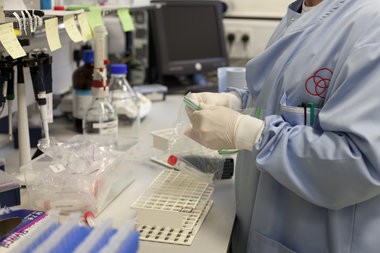We are committed to improving pathways of care and ensuring our patients and the communities we serve have access to excellent services that address both their mental and physical health needs.
Some of our achievements in improving patients care include:
Understanding the needs of people with a diagnosis of a severe mental illness and type 2 diabetes
We have conducted a health needs assessment to better understand the needs of people living with both a severe mental illness and type 2 diabetes. We know that people with mental health disorders such as psychosis and schizophrenia are two to three times more likely to develop diabetes, but care for these two long term conditions are often coordinated in isolation, with little integration of mental and physical healthcare. This assessment has included reviewing local data on the demographics of this group, as well as patient and service provider interviews, and a rapid literature review and aims to inform a better care model for the future that meets the needs of this population.
Please click here to review Health Needs Assessment for People Living with Severe Mental Illness and Type 2 Diabetes in South East London (PDF). This file may not be suitable for users of assistive technology. If you use assistive technology (such as a screen reader) and need a version of this document in a more accessible format, please email DEO@kcl.ac.uk. Please tell us what format you need. It will help us if you say what assistive technology you use.
Transforming services for young people with diabetes
Guy’s and St Thomas’ and King’s College Hospital NHS Foundation Trusts are part of an NHS England funded pilot to improve services for 16-25 year olds with diabetes. Through this pilot, the hospital-based transition and young adults clinics have been expanded, while aligned risk-based clinical pathways are being embedded across the two services. New community-based clinics have also be set up within the Lambeth and Southwark Diabetes Intermediate Care teams specifically for young people with type 2 diabetes, applying learnings from co-design work to ensure this service meets the needs of this group.
Type 1 diabetes and disordered eating service
We are delivering the first Type 1 diabetes and disordered eating (T1DE) service, which combines diabetes and mental health care for patients across London. More than 45 people have currently benefitted from this service to date, with a recent evaluation finding that amongst the people who have taken part in this service for a year there has been a 58% reduction in hospital admissions due to diabetic ketoacidosis. There was also a significant reduction in HbA1c (by 2.5%) along with an improvement in quality of life.
Multidisciplinary diabetic foot network
Disease of the foot can affect people with diabetes and without proper foot care can involve infection, ulceration, tissue problems and even amputation – affecting patients not just physically but mentally, socially and economically. We have established a Multidisciplinary Diabetic Foot Network across south east London, to ensure patients are seen by a specialist immediately after referral. By working together, this network aims to reduce morbidity and mortality by tacking variation in waiting times and quality of care by postcode and/or demographic.
Transforming obesity pathways of care
We are working in partnership with NHS South East London Integrated Care Board to conduct a comprehensive review of the obesity pathway of care (the best practice treatment journey of a patient with obesity), with a view to expanding access to the latest and most effective treatments for patients regardless of who they are or where they receive treatment, leading to improved patient outcomes and experience.
Supporting the eradication of weight stigma
According to the All-Party Parliamentary Group on Obesity, 88% of people with obesity reported having been stigmatised, criticised or abused as a direct result. We have supported the development of an International Consensus Statement and Pledge to Eradicate Weight Stigma, spearheaded by Prof Francesco Rubino with many others including the World Obesity Federation, Diabetes UK, and The Obesity Society, building on evidence that weight stigma is pervasive in all parts of society. This work seeks to improve the experience of patients with obesity, or who are overweight, and lead to improve health outcomes.
Future plans
We aim to increase our focus on improving the quality of care for people living with obesity, diabetes and endocrine disorders receive, ensuring our patients are at the centre of everything we do, and their views and experiences inform our work. We will further integrate physical and mental health, optimise pathways, develop new patient-centred models of care, and improve access to, and the efficacy of, digital technology. We will increase focus on prevention and self-management and reducing the effect of health inequalities on access and outcomes.
To achieve this, we will work closely with our partners, service users, and colleagues across the integrated care and academic health science network.
To get in touch email DEO@kcl.ac.uk.





